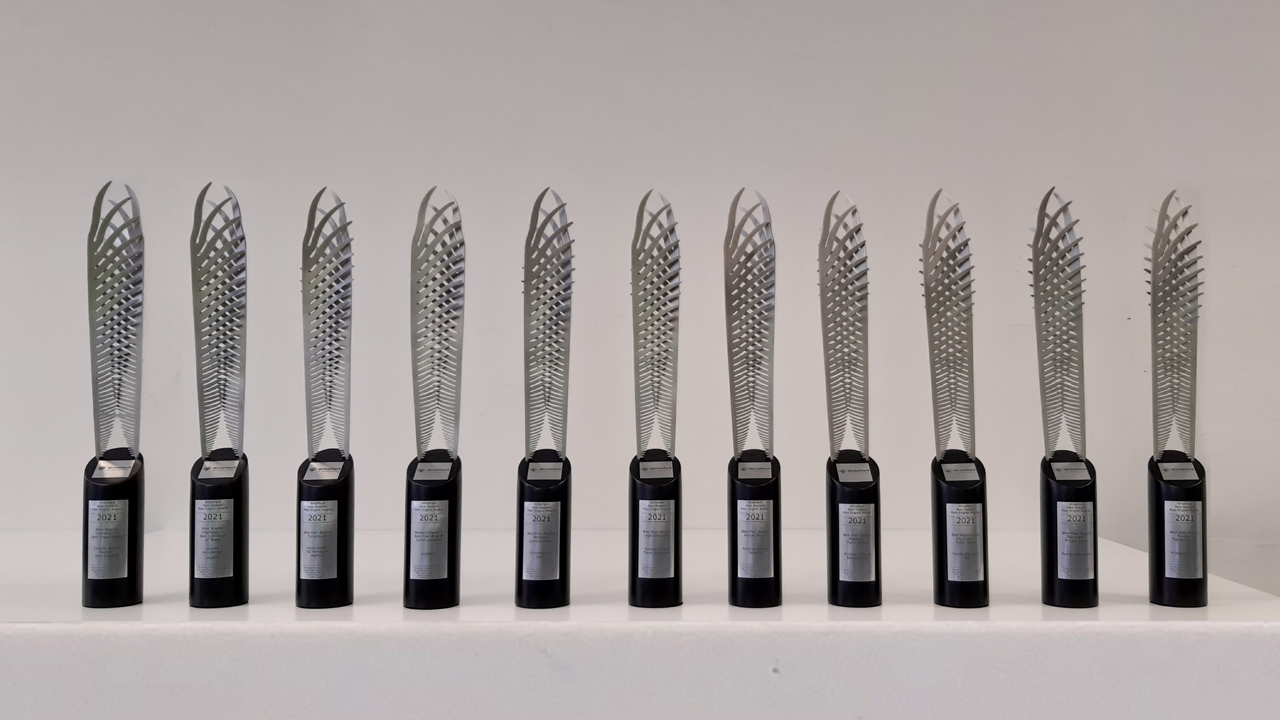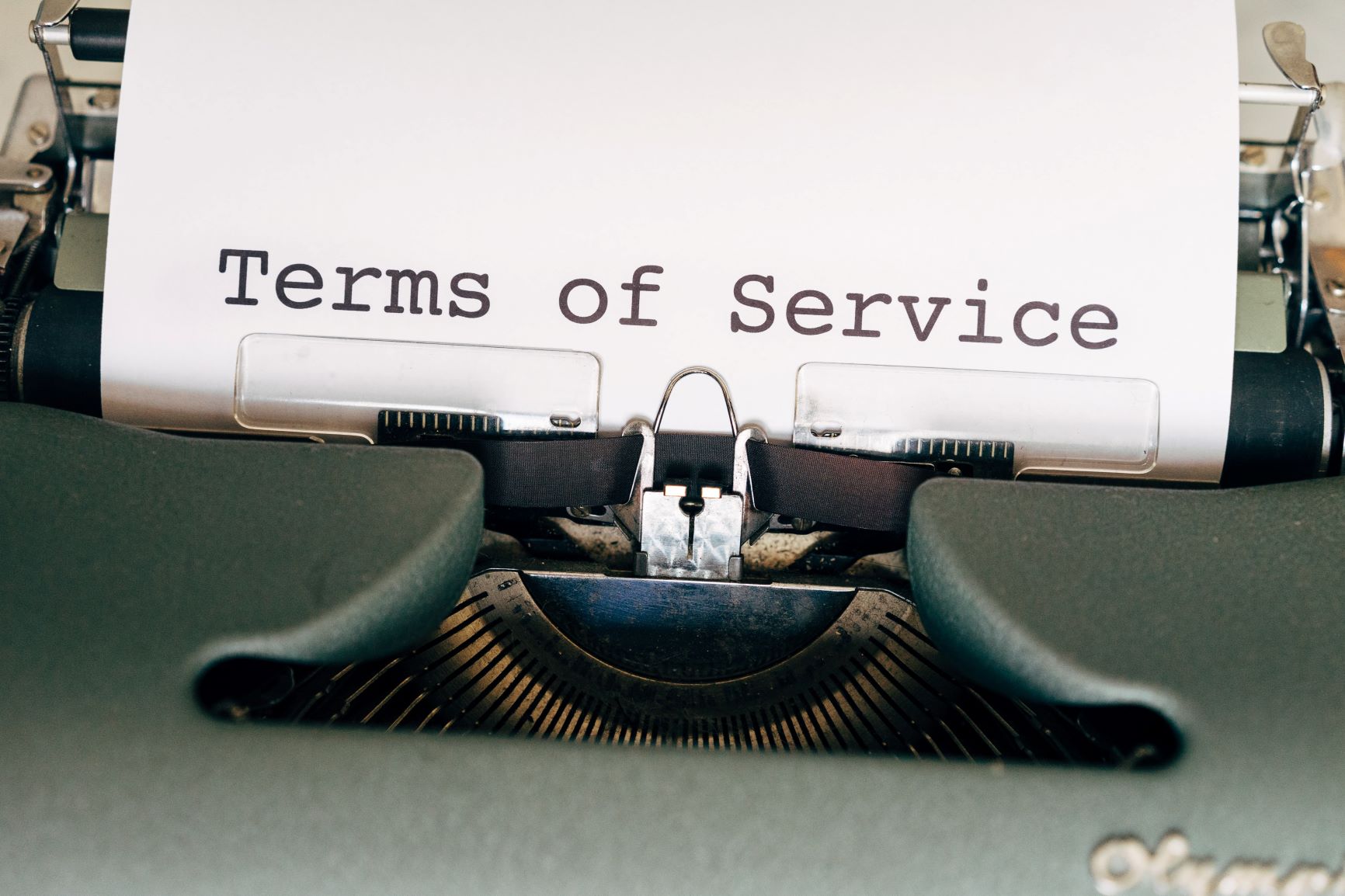
Reach for the stars by transforming your legal documents using plain language | Photo by Graham Holtshausen on Unsplash
Legal writing doesn’t need to be legalese. The judges for the Best Plain Language Legal Document are looking for excellent examples of legal writing that push the boundaries of what we might think legal writing typically looks like.
No longer stuffy or wordy, filled with passive voice or obfuscation, today’s legal writing is clear and concise yet still legally rigorous.
The judges of last year’s winning document said:
The document feels friendly and manageable. It skilfully employs all the right plain English and clear design techniques. Its language and layout make understanding it as easy as it can be without losing its legal rigour.
And they commented on the design of the document too:
Plenty of white space with tables, diagrams and worked examples used to help convey information. Good consistency in heading size and use of colour.
The document has a good tone. It’s friendly but professional — and that’s not always an easy balance to strike.
Clarify the complex
Plain legal documents do a great job of clarifying the complex so that you don’t need a law degree to understand the content.
The judges were also impressed by one of last year’s finalists:
The language used is mainly plain and great care has gone into making sure complex rules and processes are explained as clearly as possible.
Of another finalist they said:
This report is very easy to navigate, particularly considering the complexity of the information presented. It tackles a complex (and potentially eye-glazing) subject very well. It’s a visually appealing document with great use of colour and graphics. The structure works well with a logical flow and the essential, need-to-know information is clearly presented. An excellent job all round.
Enter your plain legal document
The judges are looking for the best example of a legal document written in plain language. You can enter a document used in legal contexts or for legal purposes. Examples include contracts, agreements, terms and conditions, notices, deeds, judgments, legal opinions, and so on. The document may cover a legally enforceable Act, process, obligation, or right.
Here are the judging criteria. And remember the judges will also be keen to know if you’ve evaluated your document in any way, such as carrying out document user-testing.
Purpose
The purpose of the document is clear at the start, and the content supports the purpose of the document.
Structure
The structure is clear and logical to the reader.
Headings and main messages
The headings are informative and clearly signpost the main messages.
Paragraphs
The paragraphs are mostly short and focused on one topic.
Sentences
The sentences are mostly short and straightforward.
Words
The words are precise and familiar. Technical terms are explained.
Layout and presentation
The layout helps the reader absorb the messages quickly and easily.
Check out the criteria for the Best Plain Language Legal Document
Meet the 2021 winners and finalists for the Best Plain Language Legal Document
Meet the judges for the Plain Language Awards
Anne-Marie Chisnall July 21st, 2022
Posted In: 2022 Plain Language Awards, Communications, Legal writing
Tags: agreements, Best Legal Document, Best Plain Language Legal Document, clear writing, contracts, Legal writing, policies, terms and conditions

It's time for clarity! Tell your friends and colleagues that the Awards are open for entries | Photo of tūī by Mark Trufitt on Excio
It’s time for clarity! Entries are now open for this year’s Awards in all categories. As we’re sure you’ll agree, the Awards have a category for almost every type of business writing.
From macro to micro
Perhaps your plain language project has been running for a while and you’re now ready to enter the premier Plain Language Champion — Best Organisation category. Or you might be starting small by entering the Best Plain Language Sentence Transformation.
From jargon-filled to easy-to-read
Have you turned a document or website from gobblydegook into something clear, concise, and jargon-free? Produced a shining example of anti-legalese that your clients love? Or dazzled your stakeholders with an awesome annual report that ticks all the reporting boxes?
Our judges are looking forward to seeing outstanding examples that defy the stereotypes of legal writing and business jargon.
From individual to team contributors
Technical communicators — get ready to send us your portfolios! Plain language project teams and individuals — prepare your submissions! We’re keen to celebrate your work whether it’s behind the scenes or front and centre in your organisation or sector.
From transformation to celebration
Another category the judges always love is the Best Plain Language Turnaround — especially if the turnaround was inspired by a Brainstrain nomination in previous years. And members of the public are welcome to nominate examples of the Best Communication or the Worst Brainstrain for the People’s Choice Awards.
You’ll find lots of inspiration in the statements from our 2021 winners and finalists. And plenty more on the gallery page where we showcase video stories of plain language initiatives.
Meet our 2021 winners and finalists
Get inspired by the stories in our gallery and share your own story
Entries are open until 31 July, so start planning your entry now. Once again we welcome entries from both New Zealand and Australian-based organisations.
Choose your categories for the 2022 Awards
Get involved with the People’s Choice Awards
Read about the benefits of sponsoring the Awards
Sign up to our newsletter for the latest news
Anne-Marie Chisnall May 12th, 2022
Posted In: 2022 Plain Language Awards, Communications, Story theme
Tags: Best Legal Document, Best Organisation, Best Plain Language Annual Report, Best Plain Language Document, Best Plain Language Legal Document, Best Plain Language Turnaround, Best Plain Language Website, Best Sentence Transformation, Best Technical Communicator, Brainstrain, jargon-busting, People's Choice, Plain Language Champion, transformation

A line-up of the best for 2022 | Photo by Nicola Welby
Congratulations to all our 2021 winners — what a fabulous achievement! Our judges were so impressed with the quality of entries this year and you deserve all the praise you’ve received.
We loved hearing the plain language stories that you shared with us. And we’re proud that you’ve kept the torch burning bright for clear communication in such a busy year. So pat yourselves on the back for a job well done!
Our Awards champions — raising the bar for clear communication
An extra special shoutout to Citizens Advice Bureau New Zealand, winner of the Plain English Champion — Best Organisation category. And another one to Lauren Kelindeman from Legalite in Australia, winner of the Plain English Champion — Best Individual or Team category. Your contributions to the plain language movement are making all the difference to the lives of everyone in our corner of the world.
As our founder Lynda Harris said,
Whether you’re a bold visionary, a passionate campaigner, or a quiet doer, you have qualities that the world needs more of. You have stories to tell about people who need clarity and connection. And you have the skills to inspire others to be champions like you.
So keep up the good fight and stand up for what’s right! Because you’re our champions for 2021 and we couldn’t be more proud.
Find out more about the 2021 winners
Jonathan Tan October 14th, 2021
Posted In: 2021 Awards ceremony
Tags: 2021 finalists, 2021 Plain English Awards, 2021 winners, Best Annual Report, Best Individual or Team, Best Legal Document, Best Organisation, Best Plain English Communication, Best Plain English Sentence Transformation, Best Plain English Technical Communicator, Best Plain English Turnaround, Best Plain English Website, Champion, clear communication, judges, People's Choice, sponsors. Awards ceremony

Calling all our Australian friends: It’s time to celebrate your successes in clear communication | Photo by Karl Anderson on Unsplash
Plain language is important to us here in New Zealand. It’s also a big thing in Australia. At the moment, Australia doesn’t have any awards celebrating clear communication.
Let’s not beat around the bush! After recognising the gap and fielding several enquiries, we’re opening up entries to Australia.
Haere mai, Australian plain language enthusiasts!
We’re excited to now be welcoming entries from any individual or organisation in Australia, as well as New Zealand. You’d just need to meet the same conditions as entrants do here: See our terms and conditions
You’ll also need to be an organisation that’s registered in Australia, or have a registered Australian address.
The standard entry fee for people in Australia will be AUD$125, and AUD$65 for registered charities.
Australian-based entries are welcome for any Awards categories
From Champion Organisation through to Best Plain English Legal Document, people and businesses in Australia are welcome to enter any of our categories. You can also nominate the good and the bad in our two People’s Choice categories: the Best Plain English Communication and the Worst Brainstrain Communication.
So what are you waiting for? It’s time to get entering!
Entries are open until 31 July
Read about how to enter
Melissa Wardell June 17th, 2021
Posted In: 2021 Plain English Awards, Australian clear communication awards, Communications, People's Choice awards, Plain English Awards
Tags: Best Legal Document, Best Organisation, Best Plain English Communication, Brainstrain, Champion, clear communication, People's Choice Awards, plain English, Plain English Awards

The judges are looking for easy-to-read legal documents | Photo by Markus Winkler on Unsplash
What’s the number one thing a reader of a legal document is looking for? We’d like to suggest that it’s clarity! Readers of any writing — including legal documents — are looking for a document they can read once, understand, and act on.
Read the full version of a definition of plain language by the International Plain Language Federation
The award for Best Plain Language Legal Document celebrates legal writing that gets its point across without that legal flavouring that we’ve seen so often. How often have you encountered words like these in a legal document — furthermore, notwithstanding, prior to, accordingly? And what about commence, expedite, or terminate?
Let’s see some legal documents that push the boundaries of ‘plain’
The winners of the Best Plain English Legal Document in 2018, Draper Cormack, pride themselves on communicating clearly and directly with their clients. And the judges agreed that they were doing a great job of clear communication with their terms and conditions. The judges said:
This document is written in a way that gives the intended audience a strong chance of understanding it at the first reading, and in the way the drafter wants them to. It’s clear, direct writing, using as few words as needed, and avoids being ambiguous, lengthy or technical writing and complex sentences.
Overall, it is a good example of what you can do with a legal document.
The other finalists, Infinite Possibilities and Hatch, also made clarity a key feature of their communication with their customers.
Check out a legal document with a difference in the client relationship agreement from Infinite Possibilities
And take a look at Hatch’s terms too. The judges said:
Overall this document shows what plain English can achieve in the law. The target audience is written to in a language it can understand and act upon with confidence. The flow of ideas is logical and the design is clear and concise. [The document’s audience] would easily and quickly grasp its implications.
What the judges are looking for
The judges are looking for the best example of a legal document written in plain language. You can enter a document used in legal contexts or for legal purposes. Examples include contracts, agreements, terms and conditions, notices, deeds, judgments, legal opinions, and so on. The document may cover a legally enforceable Act, process, obligation, or right.
Here are the judging criteria. And remember the judges will also be keen to know if you’ve evaluated your document in any way, such as carrying out document user-testing.
Purpose
The purpose of the document is clear at the start, and the content supports the purpose of the document.
Structure
The structure is clear and logical to the reader.
Headings and main messages
The headings are informative and clearly signpost the main messages.
Paragraphs
The paragraphs are mostly short and focused on one topic.
Sentences
The sentences are mostly short and straightforward.
Words
The words are precise and familiar. Technical terms are explained.
Layout and presentation
The layout helps the reader absorb the messages quickly and easily.
Watch videos from our judges of the legal category in our gallery:
More about the Best Plain Language Legal Document category
Anne-Marie Chisnall June 9th, 2021
Posted In: 2021 Plain English Awards, Communications, Industry awards, Legal writing, Plain English Awards
Tags: 2021 Plain English Awards, Best Legal Document, clear communication, clear thinking, clear writing, improved writing, Legal writing, legalese, writing for the public

Taking a fresh approach to legal writing with the Best Plain English Legal Document
Legal documents are changing. Once densely written, peppered with Latin, and strictly formatted, today’s legal documents are much more reader-friendly.
We’re all readers of legal documents. And we all appreciate clearly written documents that state the necessary information without resorting to legalese. Preferably, we want to be able to read the document and understand it easily. This means we can discuss the content with our legal advisor or a colleague, without having to rely on someone else to explain it first.
A fresh approach to legal
When we’re signing a contract, entering an agreement, or deciding who we’ll leave our worldly goods to, legal documents in plain English make each party’s obligations clear.
The Best Plain English Legal Document award recognises this fresh approach to legal documents. The judges will be looking for examples of legal writing that consider the reader’s needs rather than the writer’s. These are the documents that clearly and succinctly explain, streamline, and structure legal content that could otherwise be confusing to a non-legally-trained person.
Here’s what the judges praised in last year’s winner and finalist entries.
About the Contract and Commercial Law Act 2017 (Parliamentary Counsel Office)
Parliamentary Counsel Office did a great job of combining multiple Acts that were a confusing hodgepodge of legislation into a single intelligible Act.
A clear understanding of the audience and consultation with these groups made the project stronger. The explanations in the legislation were particularly useful.
The revised Act is a great step forward in New Zealand for plain English legislation. And the intended audience has a much clearer picture of contractual law in New Zealand.
About the Property Sharing Agreement (Cavell Leitch)
Cavell Leitch has shown a commitment to improving the clarity of a consumer-focused contract. Significant steps have been taken to improve the language.
The judges are looking forward to seeing what this year’s entries will bring.
Enter your fresh legal document here
Anne-Marie Chisnall August 29th, 2018
Posted In: 2018 Plain English Awards, Legal writing
Tags: Best Legal Document, clarity, Legal writing, legalese, recognition

A beautiful handmade trophy is one of several prizes in store for Accuro Health Insurance. Image by A Beautiful Photo
Our rights and obligations are enshrined in the law. But we can’t claim those rights or fulfil those obligations if we don’t understand them. Understanding truly is power. It unlocks our democratic rights.
That fact is recognised in the Plain English Awards category, Best Plain English Legal Document.
Last year’s winner sets the standard for legal drafting
The document that won last year was a mammoth effort. A team from the Parliamentary Counsel Office (PCO) combined twelve Acts into one: the Contract and Commercial Law Act 2017.
The judges said, ‘Parliamentary Counsel Office did a great job of combining multiple acts that were a confusing hodgepodge of legislation into a single intelligible act.
‘A clear understanding of the audience and consultation with these groups made the project stronger. The explanations in the legislation were particularly useful.
‘The revised Act is a great step forward in New Zealand for plain English legislation. And the intended audience has a much clearer picture of contractual law in New Zealand.’
You can enter any kind of legal document
Are you thinking of entering this Awards category? The 2017 winner is a hard act to follow, but don’t feel you have to try, says Awards organiser Melissa Mebus.
‘Any kind of legal document is worth entering — whether it’s long and complex or short and simple. The important thing is that it’s about a legally enforceable law, process, obligation, or right. Examples are contracts, T&Cs, notices, and legal opinions.’
Plain English legal writing brings business benefits
The tide is turning in favour of plain English in legal writing in New Zealand and overseas. Plain language practices report happier clients and increased business. And plain English can bring unforeseen benefits, with more clients meeting deadlines just one example.
One document, two entries
The PCO team also entered the rewritten Act in the Best Plain English Turnaround category, where it was shortlisted. Melissa says, ‘We welcome multiple entries for the same document. A good document or website can tick many plain English boxes, and should get the recognition it deserves.’
To enter, you have to submit the original document or webpage as well as the rewrite. The rewrite must be in current use.
Improve your chances of winning an award
Find out how to give winning your best shot at the Awards Trophy Tips Seminar on Friday, 4 May. You’ll get expert advice from past winners, judges, and supporters of the Awards. Attendance is free — book for the Trophy Tips Seminar online.
Entries now open on Monday, 7 May
We said we’d open on 1 May but we need a little bit of extra time as we upgrade to a new entry platform. Watch for entries opening next Monday, 7 May. Entries close on Friday, 31 August.
Melissa Wardell April 30th, 2018
Posted In: 2018 Plain English Awards, Finalists, Legal writing, Plain English Awards, Trophy Tips Seminar
Tags: 2018 Plain English Awards, Best Legal Document, Legal writing, Trophy Tips Seminar








